


Marie Curie Host Fellowships for Early Stage Training (EST)
Integrative Biology Research Group
sensing and the biological response to the environment in plants
 |
|
|
|
Marie Curie Host Fellowships for Early Stage Training (EST) |
||
|
Integrative Biology Research Group |
sensing and the biological response to the environment in plants |
three year and six month Fellowships from October 2006 |
|
|
|
|
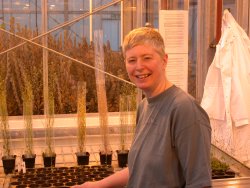 |
Dr Meriel G Jones (Co-ordinator) |
|
Dr Andy Bates |
||
| Lecturer in plant physiology. Investigates responses to stress (particularly nutrients, pathogens and temperature). Plant secondary metabolism. | Lecturer in biological chemistry/ molecular biology. Studies DNA topology and the mechanism and role of type II topoisomerases; their inhibition by drugs and toxins. Nucleic acids in the construction of nanomaterials. | ||||
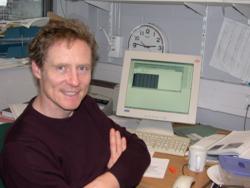 |
Dr Mark X Caddick
|
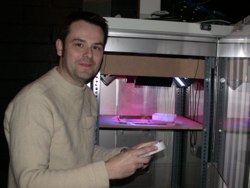 |
Dr
Anthony Hall
|
||
| Senior Lecturer in genetics and molecular biology. Focus on signalling and regulatory response effected by nutrient availability and pH. Interested in molecular genetic analysis of eukaryotic gene expression. | Lecturer in plant molecular biology. Investigates the circadian clock mechanism and associated temperature effects in Arabidopsis, using new imaging technologies and new luciferases. Research also focuses on post-transcriptional regulation by the clock and investigating the biological function of the clock using state of the art metabolomic technologies. | ||||
 |
Dr James Hartwell |
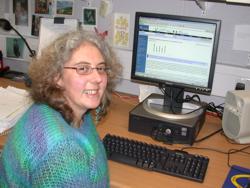 |
Dr Lesley Iwanejko | ||
| Lecturer in plant metabolism. Investigates the molecular basis for the circadian regulation of plant metabolism, focusing on Crassulacean acid metabolism in Mesembryanthemum crystallinum. Interested in plant adaptation to salt and drought stress. Technologies include imaging in transgenic plants, proteomics, transcriptomics and metabolite analysis. | Lecturer in genetics. Interested in DNA repair and mutagenesis and their involvement in ageing. Directed evolution to generate enzymes with improved biocatalytic activities. | ||||
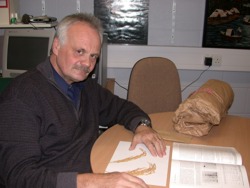 |
Dr A
Martin Mortimer
|
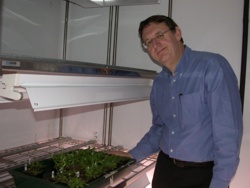 |
Professor A Brian Tomsett
|
||
| Reader in plant population biology. Studies issues underlying global food security from the perspectives of invasive species and the impact of global climate change on plant abundance. | Professor in molecular genetics. Focus on gene switches in transgenic plants to study gene function in plant growth and development and plant-insect interactions in agriculture. | ||||
| The Group Leaders in IBRG have authored over 70 articles and books in highly ranked refereed scientific journals since 1998, as well as several books. They have participated in EU-funded research (Garlic and Health, MINT) as well as nationally funded projects. They collaborate with several European research laboratories (e.g. Austria, Germany, Hungary, Ireland, Spain, Sweden) as well as industry. |
Recent publications of IBRG |
||||
| The School of Biological Sciences was rated as 5, internationally excellent, during the most recent national research assessment exercise. It occupies the new €34 million Biosciences Building, with all the facilities of a major biosciences research centre including core facilities in Genomics/Transcriptomics, Functional Proteomics, Cell Imaging and Bioinformatics. There are also temperature and photoperiod controlled growth rooms and transgenic plant glasshouses. |
|
School of
Biological Sciences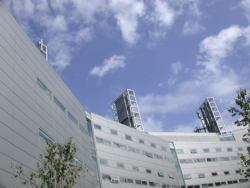 |
|||
| The University of Liverpool is one of the UK's leading research-led Universities. It is in the top 10 UK universities in terms of research income. There are 3,100 post-graduate students, contributing to a lively research culture. The Graduate School co-ordinates complementary training in research skills and techniques and also runs University-wide social events. | University of Liverpool | ||||
| The University has extensive Student Support Services, including advice on health-care, accommodation, child-care facilities, careers and assistance for students with disabilities. The University of Liverpool attaches the greatest importance to its policies and activities to promote diversity and equality of opportunity. The University is also committed to arrangements and schemes to help individuals balance their work and domestic commitments. | Student support services | ||||
| The City of Liverpool, chosen as European Capital of Culture for 2008, is a cosmopolitan and exciting city. The city is famous for its musical (both classical and popular) and football culture but also has a strong maritime history and more listed buildings than any other English city outside London. Art galleries (including the Tate Liverpool) and museums add to the culture. There is a lively night-life of pubs, clubs, restaurants, theatre and film. Liverpool offers direct flights to over 40 European destinations from John Lennon airport and is only about 2 and a half hours from London by train. The local people are renowned for their friendliness and sense of humour. |
|
City
of Liverpool |
|||
| disclaimer | |||||